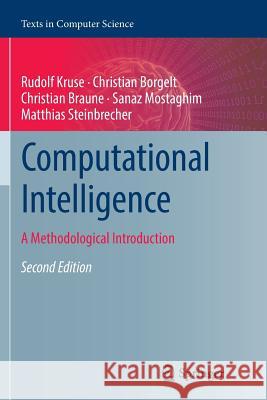Computational Intelligence: A Methodological Introduction » książka
topmenu
Computational Intelligence: A Methodological Introduction
ISBN-13: 9781447173984 / Angielski / Miękka / 2018 / 564 str.
Kategorie:
Kategorie BISAC:
Wydawca:
Springer
Seria wydawnicza:
Język:
Angielski
ISBN-13:
9781447173984
Rok wydania:
2018
Wydanie:
Softcover Repri
Ilość stron:
564
Waga:
0.80 kg
Wymiary:
23.39 x 15.6 x 2.97
Oprawa:
Miękka
Wolumenów:
01
Dodatkowe informacje:
Wydanie ilustrowane











